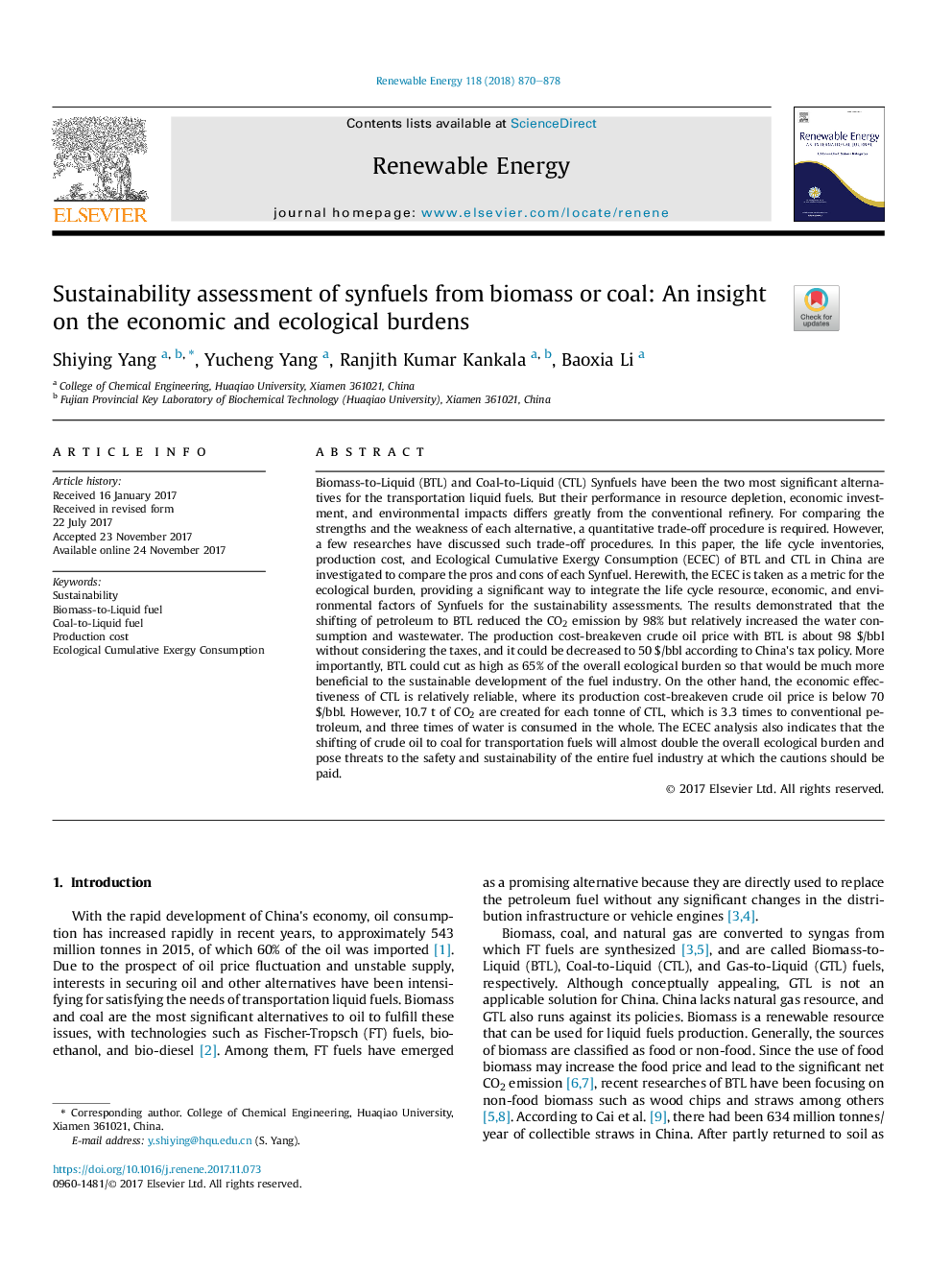ترجمه فارسی عنوان مقاله
ارزیابی پایداری سوخت های ترکیبی از زیست توده یا ذغال سنگ: بینش بر بار اقتصادی و محیط زیست
عنوان انگلیسی
Sustainability assessment of synfuels from biomass or coal: An insight on the economic and ecological burdens
| کد مقاله | سال انتشار | تعداد صفحات مقاله انگلیسی |
|---|---|---|
| 97135 | 2018 | 9 صفحه PDF |
منبع

Publisher : Elsevier - Science Direct (الزویر - ساینس دایرکت)
Journal : Renewable Energy, Volume 118, April 2018, Pages 870-878
ترجمه کلمات کلیدی
پایداری، سوخت زیست توده به مایع، سوخت زغال سنگ به مایع، هزینه تولید، مصرف اک گرجی تجمعی اکولوژیک،
کلمات کلیدی انگلیسی
Sustainability; Biomass-to-Liquid fuel; Coal-to-Liquid fuel; Production cost; Ecological Cumulative Exergy Consumption;

